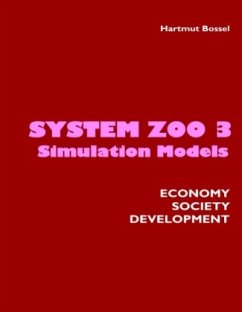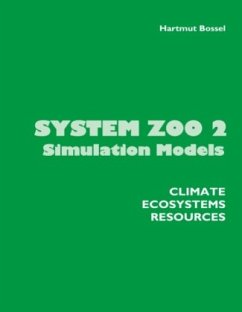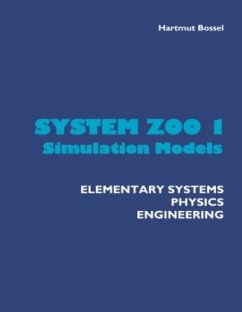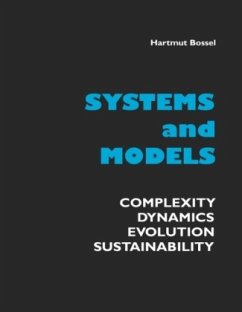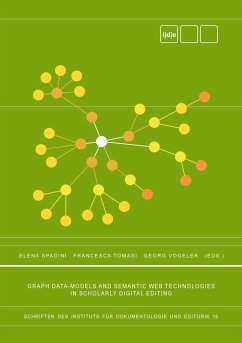About the book: Mathematical modeling and computer simulation make it possible to understand and control the dynamic processes taking place in complex systems. Simulation provides insights into the often surprising diversity of possible behaviors, and allows identifying possibilities for intervention and options for alternative development. About one hundred simulation models from all areas of life are fully documented in the three volumes of the 'System Zoo'. They can be quickly implemented and easily operated using freely available system dynamics software. Volume 3 of the System Zoo contains simulation models of economic and social systems and global development, among them: production, stocks and orders, marketing and consumption, competition, life planning, employment, ecotax, escalation, dependence, aggression, population and community development, debt crisis, globalization, the world models of the Club of Rome (by Forrester and the Meadows group) and examples of nonnumerical knowledge processing applied to impact assessment and decision processes. The System Zoo collection of simulation models is particularly well-suited for teaching, training, and research projects at all levels from high school to university, and for individual study. Volume 1 of the System Zoo contains simulation models of elementary systems, and of systems from the fields of physics and engineering. Volume 2 of the System Zoo presents simulation models related to climate, vegetation, ecosystems and resources. About the author: Hartmut Bossel is Professor Emeritus of environmental systems analysis. He taught for many years at the University of California in Santa Barbara and the University of Kassel, Germany, where he was director of the Center for Environmental Systems Research until his retirement. He holds an engineering degree from the Technical University of Darmstadt, and a Ph.D. degree from the University of California at Berkeley. With a background in engineering, systems science, and mathematical modeling, he has led many research projects and future studies in different countries, developing computer simulation models and decision support systems in the areas of energy supply policy, global dynamics, orientation of behavior, agricultural policy, and forest dynamics and management. He has written numerous books on modeling and simulation of dynamic systems, social change and future paths, and has published widely in the scientific literature in several fields.
Hinweis: Dieser Artikel kann nur an eine deutsche Lieferadresse ausgeliefert werden.
Hinweis: Dieser Artikel kann nur an eine deutsche Lieferadresse ausgeliefert werden.

